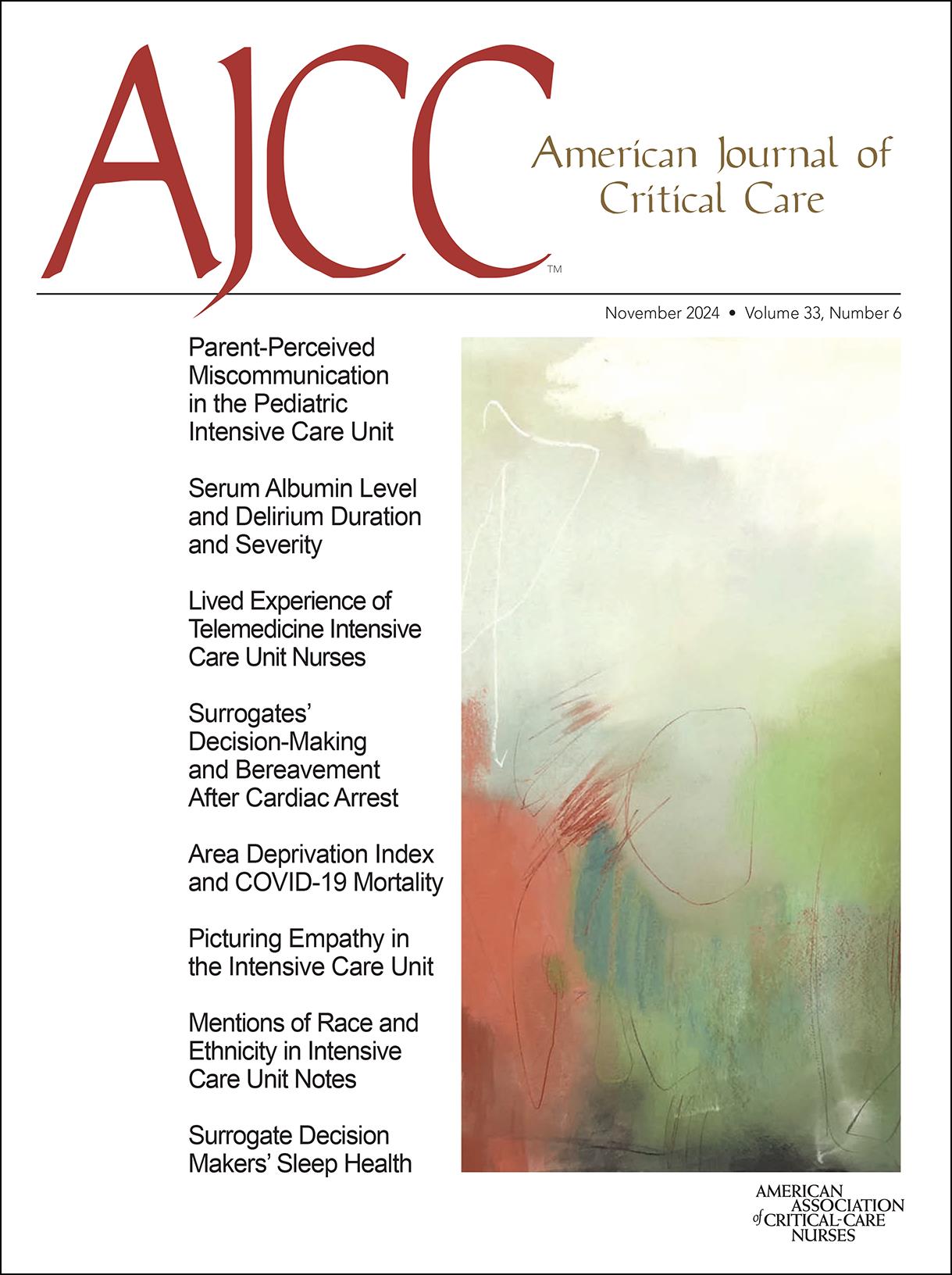American Journal of Critical Care (AJCC)

November 2024
Pages: 474-478
Topics: COVID-19, Moral Distress
Role:
Staff, Manager
Journal Article
Clinical Evidence Review
Margo A. Halm, PhD, RN, NEA-BC;
Jeannette Kassem Warren, MSN, RN;
Laura Yee, BSN, RN;
Katie Franz, MSN, RN;
Jennifer Fehlman, MSN, APRN, AGCNS-BC, CNS-PP, CCRN
American Journal of Critical Care (AJCC)

November 2024
Pages: 474-478
Topics: COVID-19, Moral Distress
Role:
Staff, Manager
More than 100 years elapsed between the emergence of COVID-19 and the last severe pandemic—the Spanish flu of 1918.1 That pandemic too took an enormous toll on nurses.2 With the increasing frequency of disasters and public health emergencies occurring in the world, the 2020-2030 Future of Nursing3 report recognizes the significance of having a healthy and well-prepared national nursing workforce to respond to such events. Thus, what nurses endured during the COVID-19 pandemic—their collective lived experiences—may offer a powerful learning tool as we plan for the future.4
As world-renowned phenomenologist Max van Manen5 describes, lived experience is a starting and an ending point. It is a textual expression of reflexive reliving of something meaningful about a phenomenon. Thus, lived experiences gather significance as we remember and give meaning to them. In doing so, lived experiences “demand us to relearn to look at the world as we meet it in immediate experience.”5(p184) In this evidence synthesis, we focus on obtaining a broad understanding of the phenomenon of nurses’ lived experiences during the recent pandemic. The PICO (patient, intervention, comparator, outcome) question informing this synthesis was, What was the lived experience of nurses during the global COVID-19 pandemic?
The search strategy included the CINAHL and PubMed databases using the following key words: nurses, COVID-19, pandemic, and lived experience. The search was limited to original research published since March 2020. Although many pandemic-related lived experience studies have been conducted worldwide, owing to the large volume of publications retrieved, this synthesis focused only on US studies.